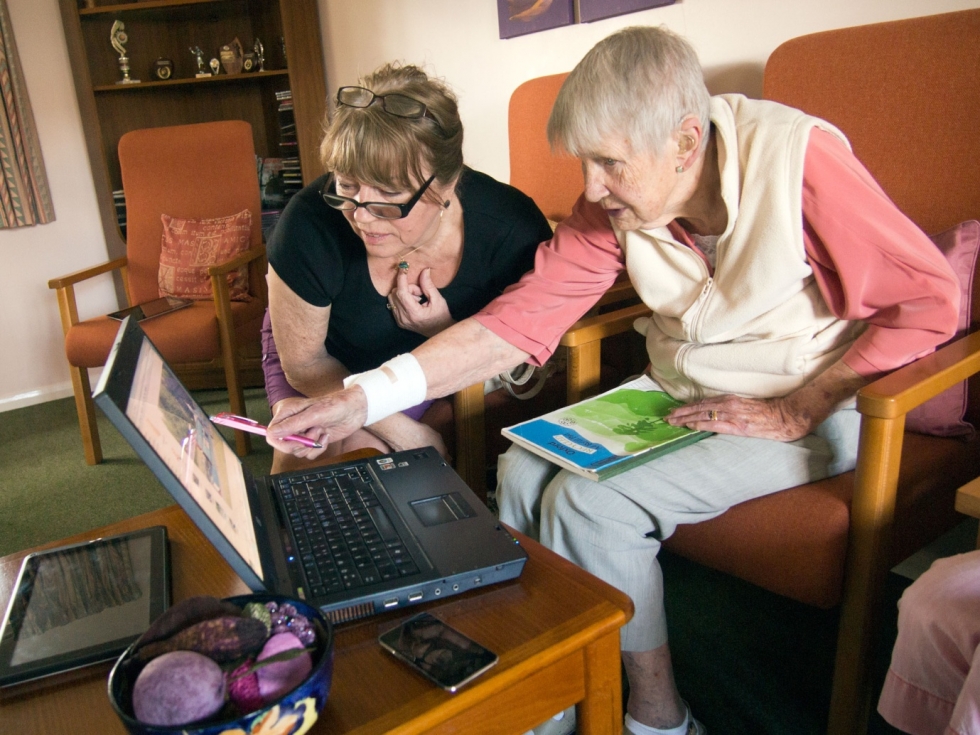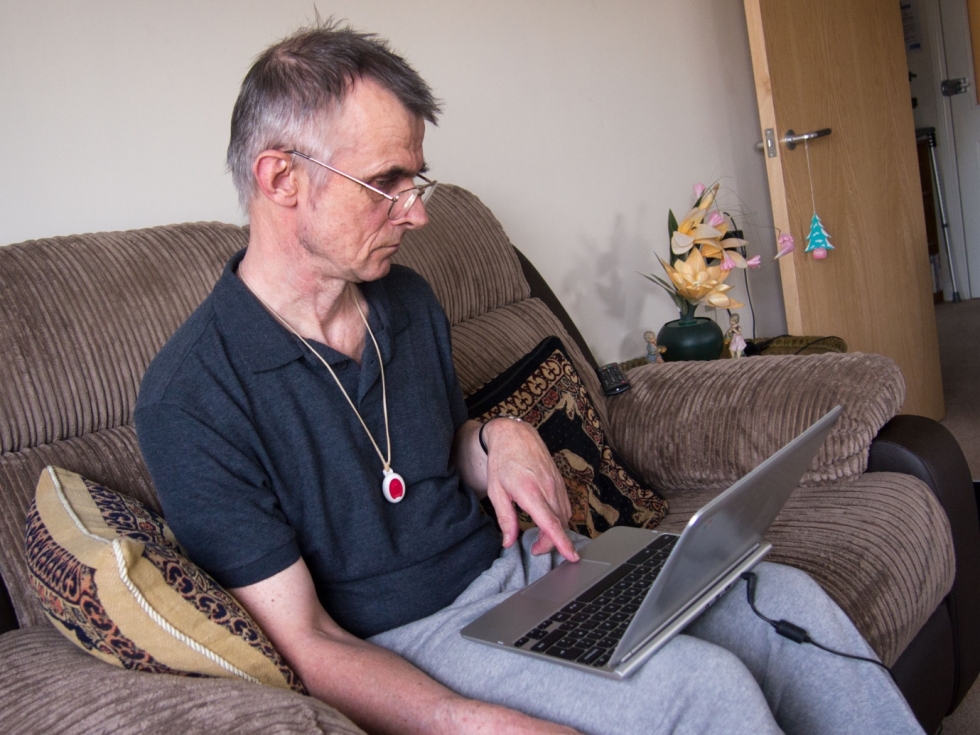Digital Unite has recently been successfully helping Hyde Housing to support a number of their residents to get and stay online.
Between November 2013 and July 2014 18 residents in the Kent area were provided with up to four regular one-to-one training sessions in their own home with a Digital Unite tutor, each of the sessions being specifically tailored to the learners’ individual needs and interests.
Funded by the Hyde Charitable Trust and delivered by Hyde Plus, The Hyde Group’s social investment team, the project was designed to meet the intended outcomes of Hyde’s Digital Inclusion Strategy, which sets out a three year plan for reducing digital exclusion amongst their residents.
Most of the learners participating in the training already had their own computer or tablet with access to an internet connection but were either total or near beginners. The lessons focused predominantly on email, web browsing and using Skype and some went on to learn more about Microsoft Word and Excel, social networking and online shopping and security.
The following is an example of how some of the Hyde residents were helped:
 Rose (pictured) had her own iPad but only used it to play games as she was lacking in confidence. During her lessons, Rose’s confidence grew so much that she quickly learnt how to use email and Facebook and was delighted to be able to see and contribute to posts made by her children and grandchildren.
Rose (pictured) had her own iPad but only used it to play games as she was lacking in confidence. During her lessons, Rose’s confidence grew so much that she quickly learnt how to use email and Facebook and was delighted to be able to see and contribute to posts made by her children and grandchildren. - Jasvinder has broadband and his own laptop and as the main carer for his severely disabled son was keen to find a part time job which would fit in with his duties as a carer. He was helped to improve his typing and Microsoft Office skills. He was particularly interested in using Excel to keep accounts. Having someone sit with him and encourage him to experiment made a big difference.
 Norman (pictured) has Parkinsons which partly affects his memory, dexterity and communication skills, but he loves experimenting with new technology. During his lessons he learnt how to get more out of his Chromebook including using the voice search facility for searching Google. He was delighted with this at it means that he will still be able to use the internet even if his Parkinsons makes it difficult for him to use the keyboard and mouse.
Norman (pictured) has Parkinsons which partly affects his memory, dexterity and communication skills, but he loves experimenting with new technology. During his lessons he learnt how to get more out of his Chromebook including using the voice search facility for searching Google. He was delighted with this at it means that he will still be able to use the internet even if his Parkinsons makes it difficult for him to use the keyboard and mouse.- Veronica had her own broadband and laptop, although she hadn’t used them for about a year. She was keen to be able to use the internet to keep in touch with family and friends, use online shopping sites etc but her visual impairment means that she is unable to read text on the screen. During the lessons, Veronica was shown how to browse the internet using a HDMI cable to connect the laptop to her 44” television. Using a large screen meant she could view magnified text and images far more easily without having to do too much scrolling.
Victoria France, Community Investment Coordinator, Hyde Plus said: “Our Ipsos MORI research showed those residents who were less confident about digital technology needed more intensive, one-to-one support, ideally in their own homes. This Switch On! Kent initiative enabled us to respond to that and help our residents develop a more meaningful use of the internet and computers. We have been delighted at the results of the Digital Unite training and the huge life-changing outcomes it has had. With Hyde now a member of the Digital Champions Network for Housing we are looking forward to developing an army of people to build on this and help more of our residents to get and stay online.”